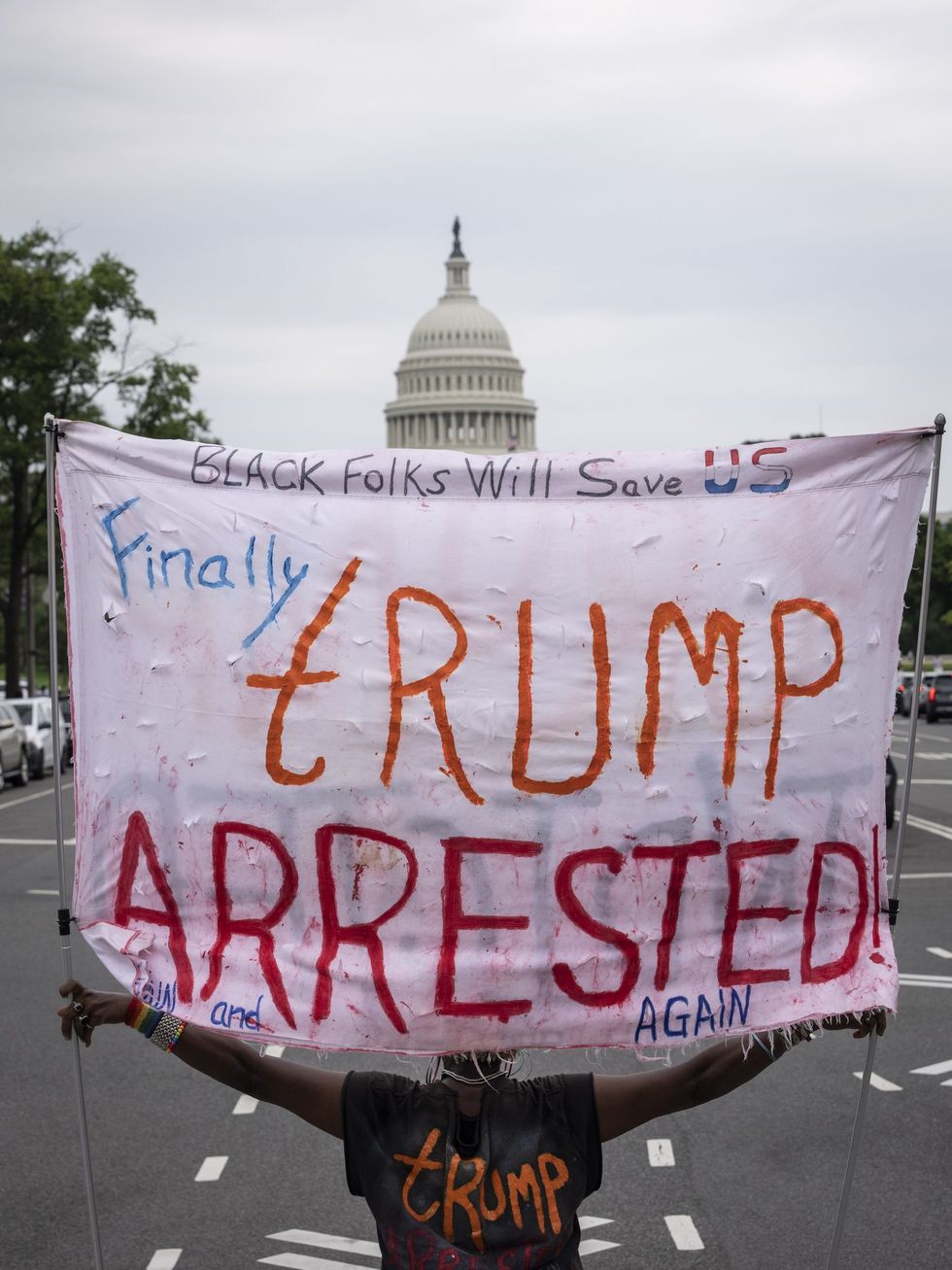‘THE United States versus Donald Trump’. The title of the 45-page indictment of the former President could be a TV mini-series title, though the third season plot of this Trump melodrama often seems stranger than fiction would dare.
Trump is now set to spend a fair chunk of his Presidential campaign year tied up in court. Might be keep running for President – or even get elected – while behind bars?
Trump probably won’t be America’s next President, though most people thought that back in 2016. He got lucky then. Hillary Clinton won almost three million more votes, but Trump’s knife-edge wins in key states won him the Electoral College. He was more than five million votes down in 2020 but close results in four states could have flipped the result again.
The indictment says that Trump had the right to claim to have won, even falsely, and to pursue the recounts and lawsuits that failed for a lack of evidence. It alleges that his actions, creating false lists of electors in seven states to press state officials and the Vice President to overturn the result, was an unlawful conspiracy.
It is an exaggeration to claim that the indictment could actually boost Trump’s Presidential chances – but nor does it end them. Most Americans do believe that Joe Biden was elected fairly, by 60 per cent to 30 per cent. But more than half of Republican voters are in that sizeable minority – and another significant chunk don’t see trying to overturn an election result as a disqualification. So Trump remains the runaway leader in the Republican primary polls. Three-quarters of Republicans see these charges as politicised, though in a Reuters poll last week only 28% of Republicans said they would still vote for Trump if he was actually in prison.

The task of leading candidates is usually to introduce and define themselves to the American public. But everybody already has a view about Donald Trump, and not many minds can be changed now. Trump is one of the least popular Presidential candidates in living memory. He is the first former US President for over a century, since Teddy Roosevelt in 1912, to mount a serious campaign to try to get the job back.
Yet the Trump versus Biden 2024 polls are currently tied at 43% each. Biden is unpopular too, grappling with a struggling economy and a divided country. Each man may represent his rival’s best hope of re-election. The depth of American polarisation risks setting politics in concrete, with ever fewer swing voters: 93% of Biden and Trump voters say they would vote the same way again. One problem is that if politics becomes so strongly a question of tribal identity – of two entirely different ideas of America – then performance in government can cease to matter.
We talk too loosely about “culture wars” to mean any old twitterstorm about identity. Used properly, it involves the type of fundamental existential clash that it is not possible to agree to disagree about. As the January 6th insurgency showed, people can feel legitimised to take violence if there is a breakdown over whether and how the democratic political system resolves arguments about who has the right to govern.

Britain is much less politically polarised than America, to set rather a low bar. In America, wearing a face-mask during the Pandemic almost became like strapping a Presidential ballot paper to your face, with Republicans also much less likely to take a vaccine. There was no such political divide in Britain. Public anger at rule-breaking parties in Boris Johnson’s Downing Street was therefore broadly held across party and referendum divides.
Trump’s chances of returning to the White House in November 2024 currently look considerably stronger than Rishi Sunak’s prospects of remaining in Downing Street beyond the next General Election here. But Britain still has many swing voters up for grabs, as party allegiances have got weaker rather than stronger. Voters on different sides of Brexit and even Scottish independence can change parties next time.
One of the biggest inoculators against US-style polarisation in Britain is our broadcasting culture. America’s dystopian polarisation is reinforced because, every time anything big happens, the two American political tribes are watching two parallel narratives on channels like CNN and Fox. Fox News paid $787 million to settle a defamation case to the makers of election count machines. The court documents showed that the broadcasters knew that Trump’s claims were false, but feared losing an audience that wanted to hear them.
The trials and tribulations of Donald Trump are not just an issue for a deeply divided America. Trump’s return would have profound implications for the international order too. Donald Trump has undoubtedly become America’s Polariser in Chief – but the challenges of defusing polarisation go much deeper than the ego of one man.



















 His Highness Prince Rahim Aga Khan V
His Highness Prince Rahim Aga Khan V


Trump is America’s Polariser-in-Chief – but US divides run far deeper
Trump's return to the White House in November 2024 would have profound implications for the international order, says the expert